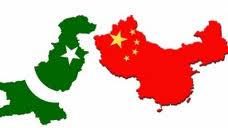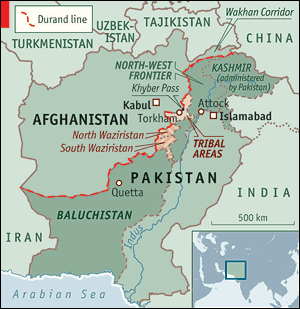Unstable Geopolitics, Pakistan’s Alliance with China: Trump’s Backlash against Pakistan Reveals the Dawn of a Disputed 2018 Year

Before Trump’s presidency, each US warning to Pakistan seemed symbolic and intended to pacify the outrage and resentment of global critics for not fighting terrorism seriously. Even in Afghanistan, the people would cheer the US’s crackdown on Pakistan over its hypocrisy to annihilate terrorism within its soil.
Following President Trump’s UN General Assembly address where he lambasted at Pakistan over harboring of terrorism that killed the US soldiers in Afghanistan and the solemn practical anti-Pakistan moves by the US, it came to surface that something is wrong.
The US- Pakistan relationship dates back to the 1950s. Pakistan was supportive of US’s interests in the region and left no stone unturned in its effort to expel Russia from Afghanistan, acting on behalf of the US.
Pakistan help secured the US’s ambitious grand plans in Afghanistan and the region and it really hate to receive infamous warnings from the same power in the face of world.
It is true that the alliance with the US cost Pakistan countless lives and tarnished its image in the eyes of the world, but it did get US$ 33 billion in return since 2001, according to official US figures. Now the blocking of US$ 225 million in aid is not a big deal for Pakistan as it has been inundated with multifold offers by the all-weather ally, China. The ties have heated so much that China overlooked Pakistan’s long history of support of terrorism and took position in its favor following Trump’s attack in the UNGA.
China-Pakistan’s Economic Corridor Project is quite adequate to beef up Pakistan’s economy as much as to drive it far from the embrace of the US. As the strategic interests have no permanent borders, the once rival Russia has also edged towards establishing firm relations with Pakistan.
Trump’s war of words with Pakistan is triggered solely over its nearness to China.
As a stiff-necked rival of Pakistan and China, India has been the most ideal choice for the US to approach at this crucial time. The US has even considered the stationing of Indian forces in Afghanistan which could be the worst music for the ears of Pakistan. Pakistan is hasty to react at the US officials’ offensive remarks in any form possible as it doesn’t seem as much contingent on the US assistance as it used to be. In an unseen move, Pakistan summoned the US ambassador and lodged its complaint in the wake of Trump’s tweet that reverberated throughout the world.
Amid its strained relations with Pakistan, the US blocked a Turkey-Pakistan agreement over training of Turkish pilots by Pakistan; it froze the assets of a large Pakistani Bank in New York and unofficially authorized the Afghan Government to take identical actions against Pakistan’s bans and embargoes on Afghanistan.
In early January, Pakistan’s military warned the US against the possibility of taking unilateral action against armed groups on its soil.
The issue sounds to be serious as the US Vice President Mike Pence in its surprise visit to the largest US base in Afghanistan in December uttered that “Trump has put Pakistan on notice”. His visit of Afghanistan could, in most part, be for warning Pakistan over its proximity to China.

US VP Mike Pence in Afghanistan on December 21, 2017. (Source: Stars and Stripes)
It has to be noted that Pakistan’s defiance of US demands could cost it a lot in many respects, but if it victoriously resisted the US wishes especially “retreating from alliance with China”, this could result in a historical shift, which would force the US to give up its plans of regional hegemony, to the benefit of China, Russia and Iran.
In its host country [Afghanistan], the US is planning to strip ex-Jihadist commanders of power whom it armed and supported against the Soviet Forces in early 90s. The time is ripe for the US to force the strongmen out of Afghanistan’s political base and the Government. It ousted the former warlord Gen. Abdul Rashid Dostum who lives in exile in Turkey. Now, it has hurtled towards the powerful provincial governor of northern Afghan province of Balkh, Atta Mohammad Noor, who clung on to governorship for the past fifteen years. Other heavyweight Jihadist commanders who influenced the public minds have been ditched in one way or another since 2001.
The ground reason behind this purging effort is that they might side with Russia or Iran and could build a barrier to US influence. The US is now shifting its role into a new stage in Afghanistan and much of the miseries and new shocking stories witnessed in this country trace back to it.


